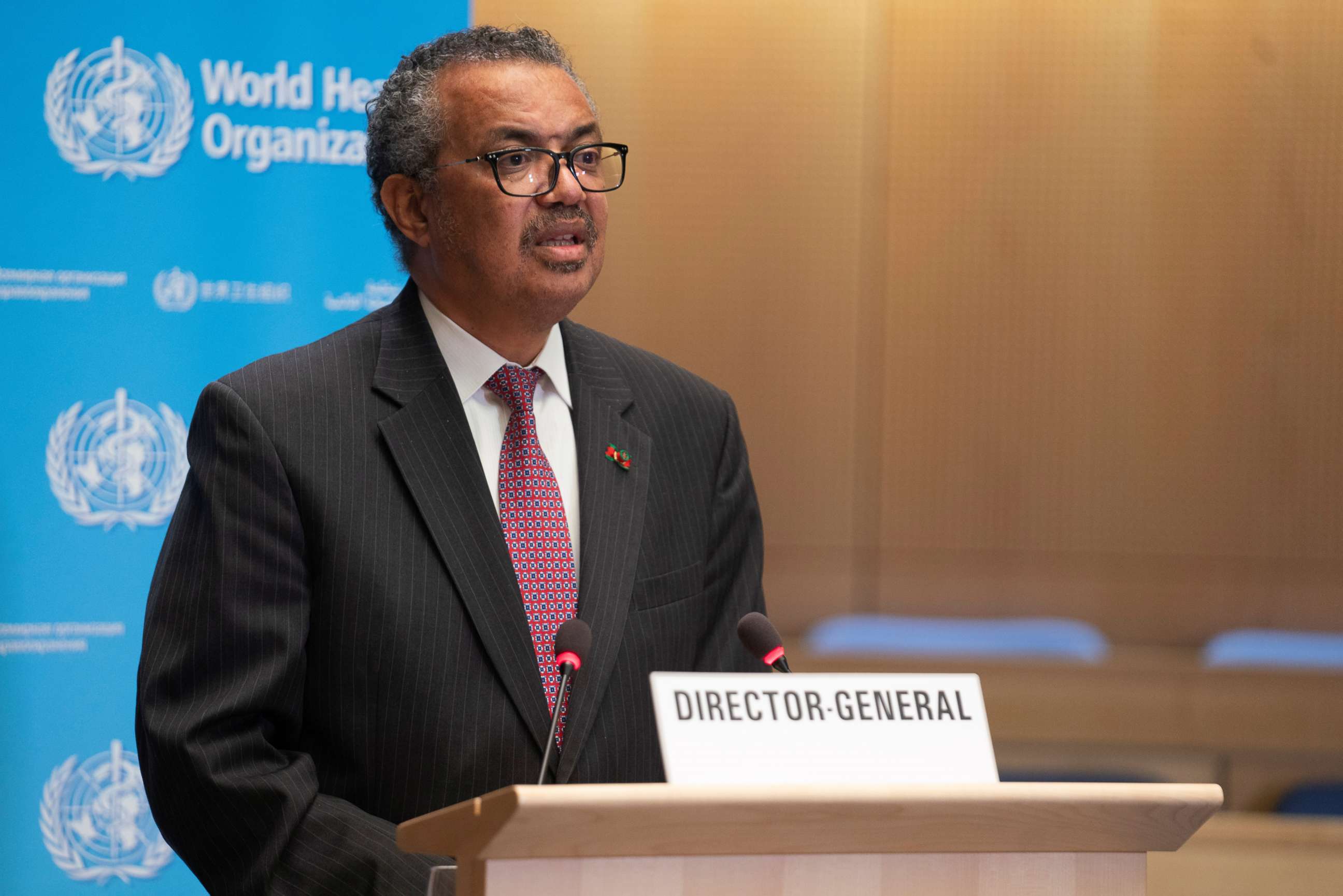'Time has come' for pandemic treaty, WHO chief says
LONDON -- The head of the World Health Organization has called for launching negotiations on an international treaty on pandemic preparedness and response to better ready the world for the next disease outbreak.
"This is an idea whose time has come," WHO director-general Tedros Adhanom Ghebreysesus said Monday during the final day of the World Health Assembly in Geneva. "The safety of the world’s people cannot rely solely on the goodwill of governments."
"At present, pathogens have greater power than [the] WHO. They are emerging more frequently in a planet out of balance. They exploit our interconnectedness and expose our inequities and divisions," he added. "We need a generational commitment that outlives budgetary cycles, election cycles and media cycles, that creates an overarching framework for connecting the political, financial and technical mechanisms needed for strengthening global health security."

The theme of the weeklong World Health Assembly was "Ending this pandemic, preventing the next one." Earlier in the day, health ministers from the WHO’s 194 member states agreed to study recommendations for sweeping reforms pitched by an independent panel of experts, who found various loopholes and crucial failures in the global response to COVID-19 in early 2020. The ministers will meet again on Nov. 29 to decide whether to begin negotiations on the pandemic treaty.
The WHO has come under fire for its handling of the pandemic, and Tedros said the United Nation’s global health arm faces a "serious challenge" to maintain its COVID-19 response "at the current level."
"It all has to be funded," he said. "[The] WHO cannot grow stronger without sustainable financing."
In March, amid a lack of global coordination on COVID-19 and an ongoing jostle for vaccines, more than two dozen world leaders signed a letter calling for an international treaty or framework on pandemic preparedness and response to "dispel the temptations of isolationism and nationalism." Notably, China, Russia and the United States did not sign the letter.





